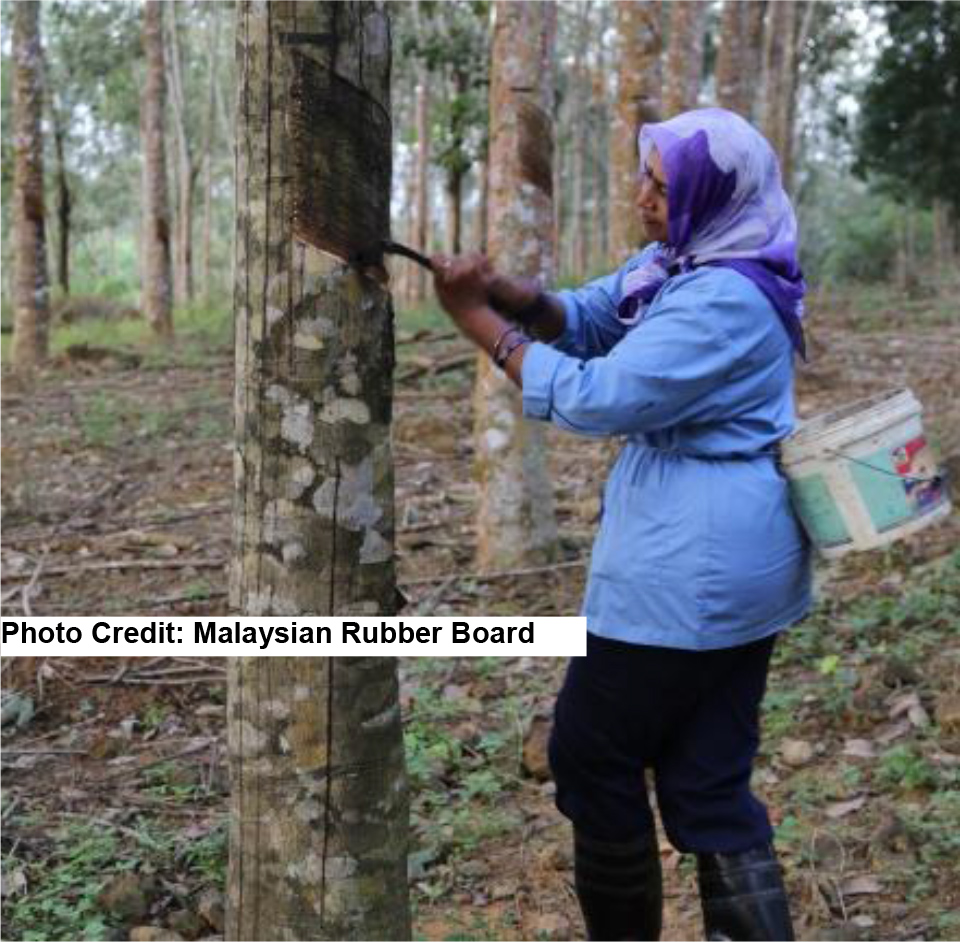
The ASEAN region is a major producer of rubber in the world with Thailand, Malaysia, and Indonesia supplying almost 79% of the global demand for natural rubber1 . To facilitate regional and international trade in rubber-based products from the ASEAN region, the harmonisation of standards, technical regulations and conformity assessment procedures, as well as developing Mutual Recognition Arrangements (MRAs), will strengthen the capacity of ASEAN Member States in addressing Technical Barriers to Trade.
The harmonisation of standards to comply with available internationally accepted quality standards has enabled the rubber-based products from the region to be traded in both regional and international markets. A total of 47 rubber-based product standards have been harmonised with international standards such as the ISO Test Method Standards and the ISO Standards. The harmonised standards have been developed for natural rubber latex, rubber hoses, foam products, babies’ teats, pacifiers and rubber nipples, and bridge and seismic bearings.
To support the implementation of the harmonised standards and overcome challenges posed by Technical Barriers to Trade (TBTs) in the form of different standards and technical regulations demanded by trading partners, the ASEAN Rubber Reference Laboratory (ARRL) and the Database of Rubber and Rubber-based Products are currently being developed to set and regulate performance criteria, responsibilities, roles, and implement key activities and trainings. The Database provides an easy reference on the current standards used by ASEAN Member States, including the list from the Rubberbased Association and the ASEAN Accredited Laboratories. To date, 60 laboratories across the ASEAN Member States have been recognised as ASEAN Accredited Laboratories. The test results and/or inspection certificates issued by these laboratories are recognised by all regulators across the ASEAN region.
The development of MRAs for rubber-based products is still being discussed. When MRAs are adopted, the duplication of testing and inspection of products can be eliminated, thereby saving cost and time for goods to move across borders. It will also play a part in reducing the amount of substandard products that are traded, which poses a risk to the health and safety of consumers.
IRCo Media Release: International Tripartite Rubber Council (ITRC) Ministerial Committee Meeting 2014
November 20, 2014
1. ASEAN Sectoral Integration Protocol for Rubber-Based Products
2. List of ASEAN Accredited Laboratories for Rubber-based Products
For more information, please send an email to aimo@asean.org
Source: asean.org
Share: